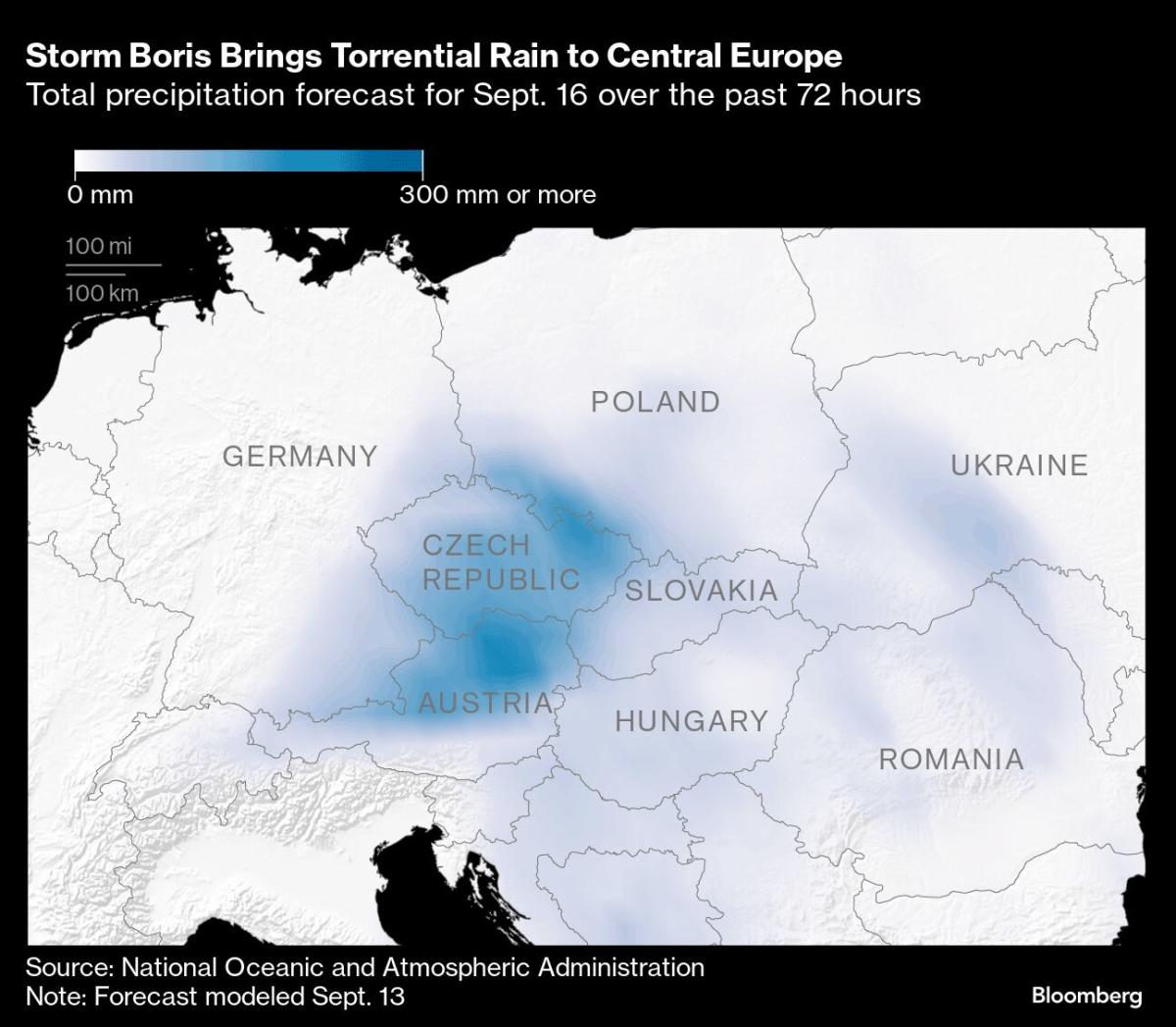


(Bloomberg) — Water levels on the River Danube rose further, as deadly floods unleashed destruction across central Europe.
Most Read from Bloomberg
The torrential rain from Storm Boris is set to subside on Tuesday but water levels remain elevated across the region. In Austria, the focus is turning to the threat posed by melting snow and landslides, after the slow-moving cold weather system brought heavy falls over the weekend to the eastern Alps.
Czech authorities are monitoring the risk to the northern city of Ostrava, along with southern parts of the country, while red flood alerts are also in place for Hungary and Slovakia. In Poland, the city of Wroclaw may be threatened later this week by the swollen rivers.
The heat waves that seared the Mediterranean this summer — raising sea temperatures to record levels — are helping to turbo charge storms across Europe. It’s another sign that climate change is increasing the intensity and frequency of extreme weather events.
The floods have triggered emergency measures in Austria, the Czech Republic and Romania, after thousands of people were evacuated. There has been widespread disruption to transport services and power supplies to many towns and villages were temporarily cut. At least 18 people have been killed.
Austria announced a fourth flood death late Monday, while authorities continued evacuations overnight in nine towns across Lower Austria.
Rail traffic on Austria’s key corridor between Vienna and Salzburg remains closed on large sections. In the capital, four out of five underground lines are running partial services.
Bavarian authorities reported rising water levels on the Danube at Passau, a border town between Austria and Germany that’s also the confluence of the Danube, Inn and Ilz rivers.
Polish Prime Minister Donald Tusk held a crisis staff meeting at 7 a.m. after 44,000 residents in the southwestern city of Nysa were told to evacuate amid concern that a lake embankment could breach.
Tusk said the floods in the neighboring Czech Republic are due to move into southern Poland. That poses a threat later this week to Wroclaw, a city of more than 600,000 that was badly hit by floods in 1997.
In Hungary, the banks of the Danube in Budapest were closed to traffic and so was Margitsziget, the island where residents go for a run or a swim. Volunteers joined the army in working all night to pack sandbags along the river, as the nation expected the highest water levels in more than a decade.
–With assistance from Irina Vilcu.
Most Read from Bloomberg Businessweek
©2024 Bloomberg L.P.